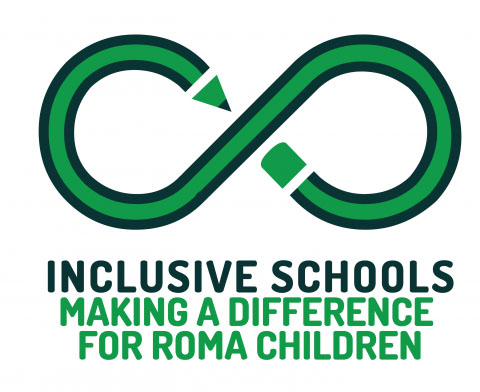The European Union and Council of Europe Joint Project “Inclusive Schools: Making a Difference for Roma Children (INSCHOOL)” aims to support the design and implementation of national inclusive education policies and innovative inclusive education practices in targeted member states in line with the European standards and principles for quality inclusive education. Developing professional competences and awareness on inclusive education policy and practice among relevant stakeholders is an important aspect of the interventions of the INSCHOOL Project.
In this framework, the INSCHOOL Project is organising a training course on education policy making based on inclusive values and data, to raise participants’ competences about policymaking processes in education based on inclusive education values, research, and data. The training will focus on articulating more deeply on the cycles of policy making in education for students from disadvantaged backgrounds and embedding core principles and values into policy frameworks at all stages. The training programme will also pay attention to exploring policy solutions to challenges faced by children at risk of marginalisation and exclusion, including Roma.
Objectives of the course:
- To raise the awareness and understanding about inclusive education values and concepts
- To develop participants knowledge about the different stages of policymaking in education and to develop solutions based on values and data;
- To develop the abilities of participants to analyse challenging situations in education and develop solutions with the application of approaches such as human rights, participation, equity, interculturality, citizenship, etc.
- To explore and make use of methodologies of linking credible research data for the purpose of policy development, monitoring and evaluation;
- To analyse and be able to develop comprehensive policy solutions in education for the most marginalised community of learners, including for Roma children and those learning in segregated settings;
- To enable peer policy exchanges and knowledge about good and inspiring policy and pedagogic practices;
- To introduce the relevant policy frameworks provided by the European Union in relation to education and training and the relevant 2021-2027 EU Funds regulations, to reflect on the necessary steps to meet the relevant European standards and recommendations when it comes to quality inclusive education;
- To introduce relevant policy standards by the Council of Europe in relation to quality inclusive education;
The training course will involve:
- Residential training event between 10-14 July in Budapest, Hungary (arrival and departure dates included)
- E-learning, practical work and assignments between August – December 2023
- An evaluation training event in early 2024 (to be confirmed)
The E-learning phase will include training sessions based on the needs of the participants and specifically addressing policy dilemmas with which they are confronted in their professional settings. This shall include but not limited to key-note presentations, webinars, workshops, reading materials, practical assignments, etc.
All those interested are requested to submit the thoroughly filled-in expression of interest form and an up-to-date CV by 21 June 2023, 23:59 CET.
For more information, please consult:


